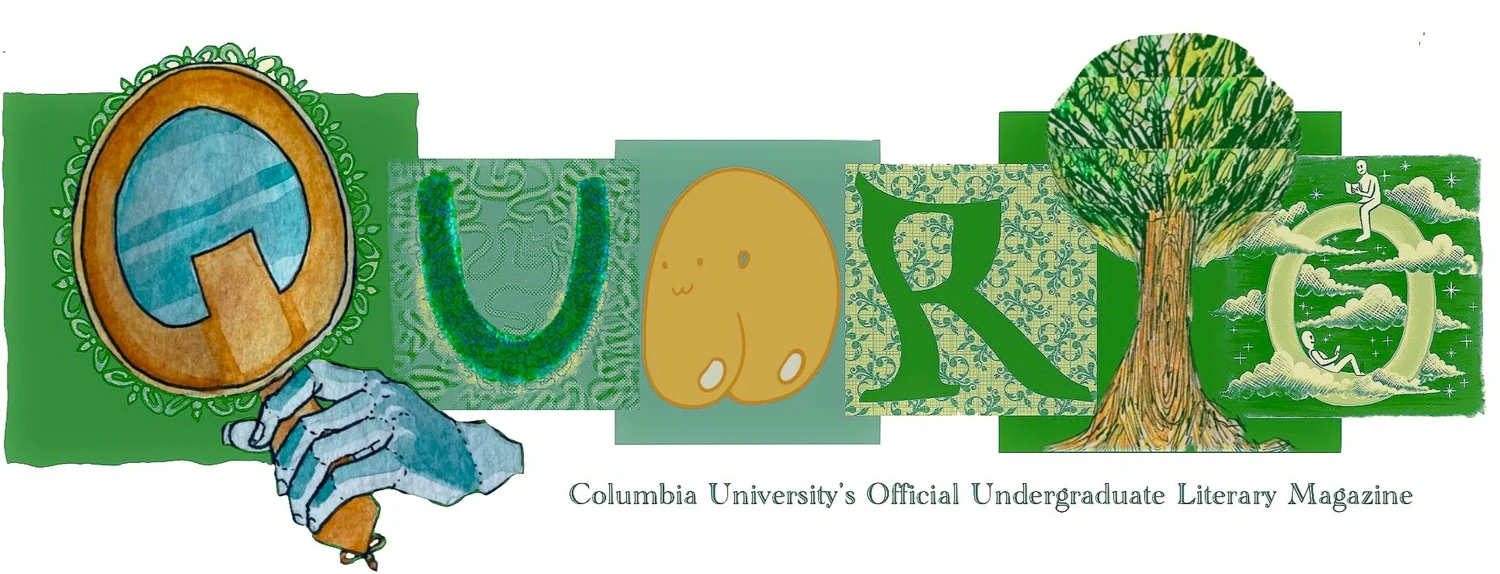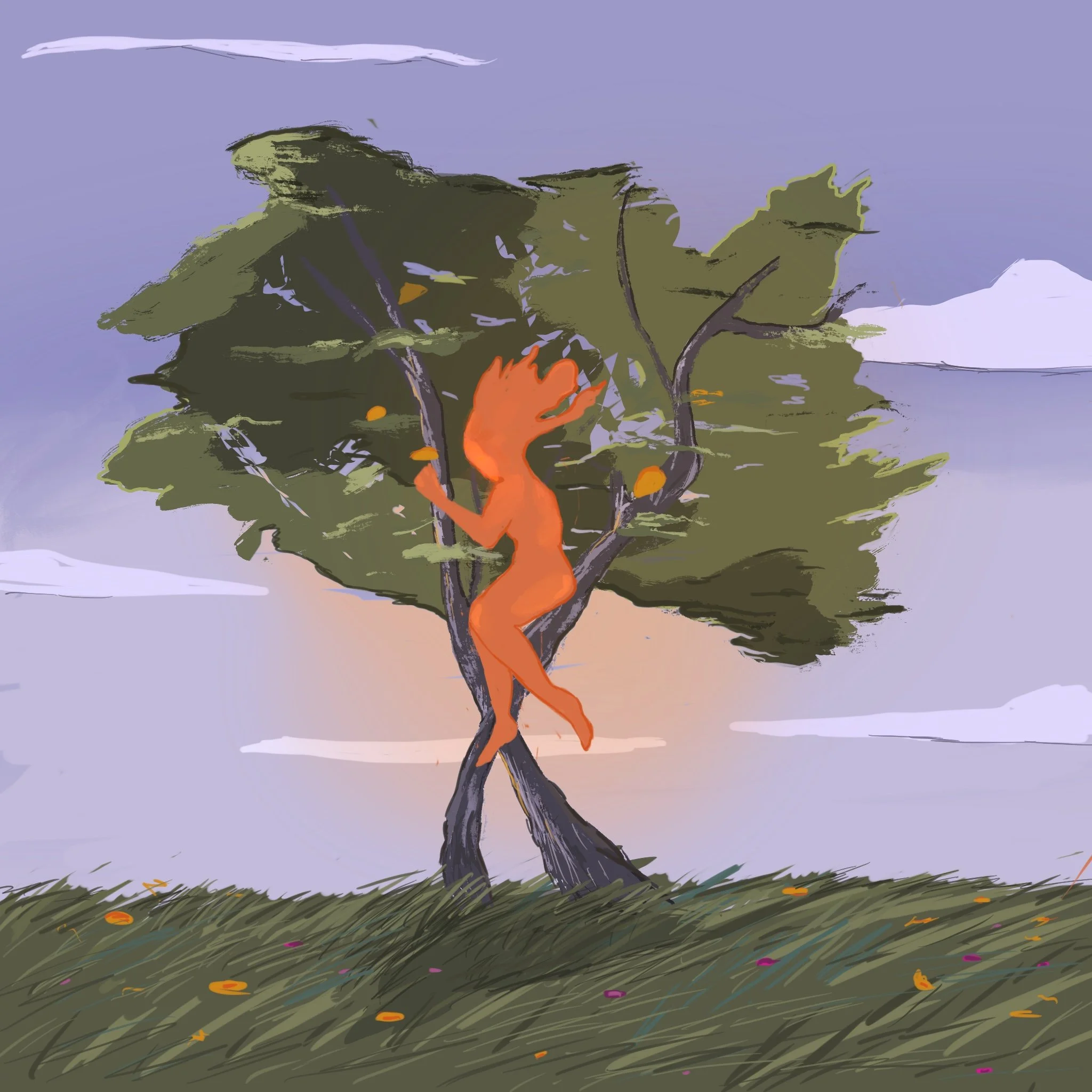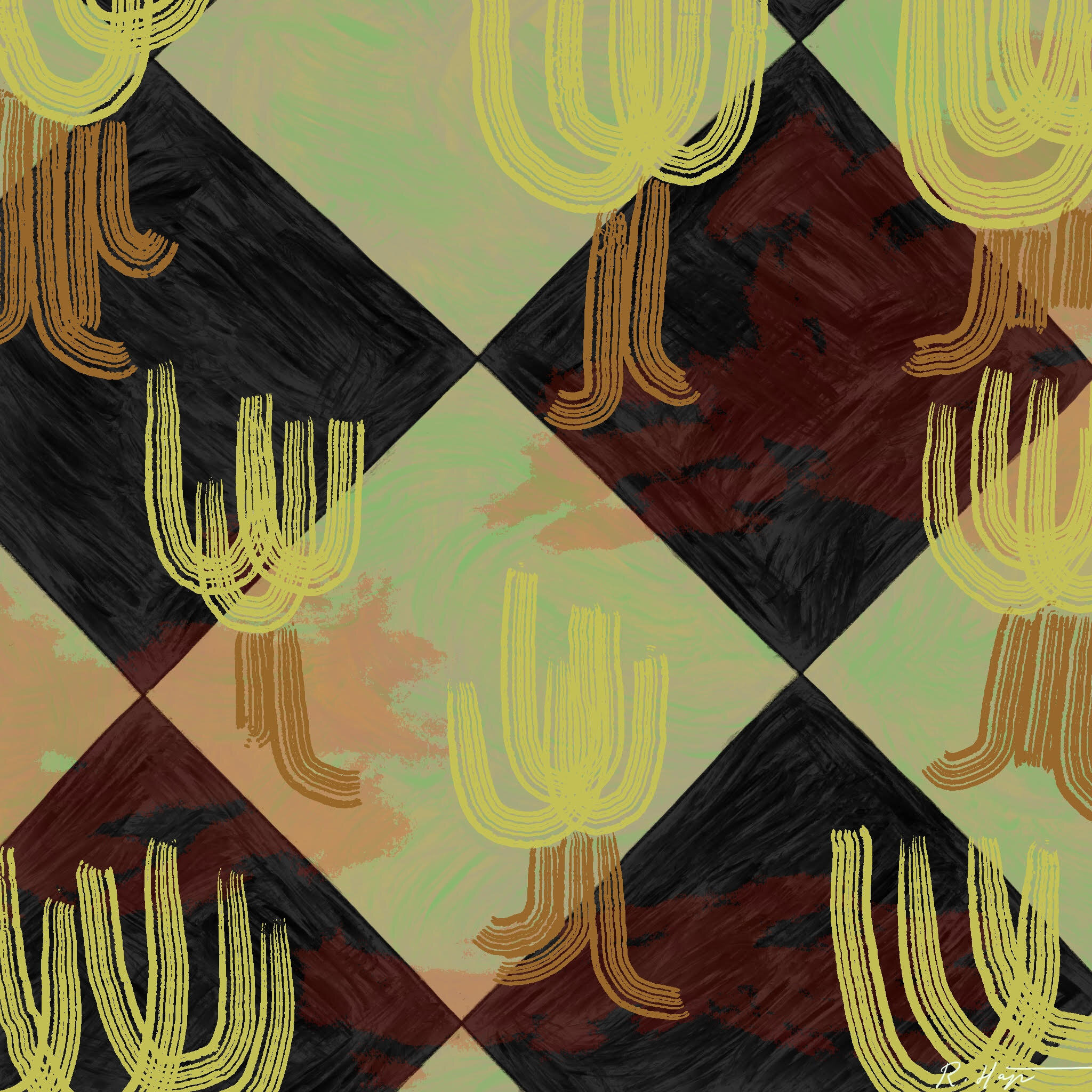Content warning for eating disorders
My daughter dances behind my eyelids when I dream.
I see her hair, dark like mine. Her profile, the familiar bump in her nose.
Her footsteps bounce off the grey walls of my apartment
on the nights I catch myself alone. Like my mother
That summer she couldn’t get out of bed
I’ve let the dishes pile up around the sink.
I play piano on hard surfaces— I hear Vivaldi’s “Spring”
as vividly as my daughter’s voice. I smell her fevers—
mild like honey milk. Under my breath,
I tell the grey space about Redwood fairy rings
and pretend I’m lulling my little girl to sleep.
I haven’t felt clean since California but when I think of her I feel untouched.
I can picture myself teaching her to paint.
Her little fingers wrapped around the gold-tipped brush
my grandmother gave me in high school.
I’ll ask her to paint what she hears when she listens to Mazzy Star.
Sometimes she looks too much like me.
She has a mole on her temple that she taps when she’s scared.
I don’t want her to know my history—
I push her from my brain when she tells me she's hungry.
Her wails reverberate around my skull, demanding food I won’t give.
After mealtimes, kneeling over the toilet,
She cries as we choke on my hand.
When I can’t sleep she lays beside me.
I stroke her hair and rhyme our breaths.
Stuck to my heels like a shadow, she learns my nightly practice of self-beration
And I hear the cruelty in her voice when she joins in.
I can picture her in San Francisco, eating peaches by the bay.
The blue water and pink houses marvel her; the sweetness of the fruit lights up her
eyes.
I want her to savor it—to swallow it and keep it down, but then I see her back in
Texas,
standing small as I stood in my childhood home.
Lit up grey by the refrigerator light, she looks up at me with hollow green eyes
and asks me why her body doesn’t feel like home anymore.
Skye Levine (she/her) is a second-year at Barnard, prospectively majoring in English and Sociology. She is from Austin, Texas, and is currently based in New York City. She loves hiking, live music, drawing, and drinking (too much) coffee. You can find her on Instagram (@skyelevine)




















